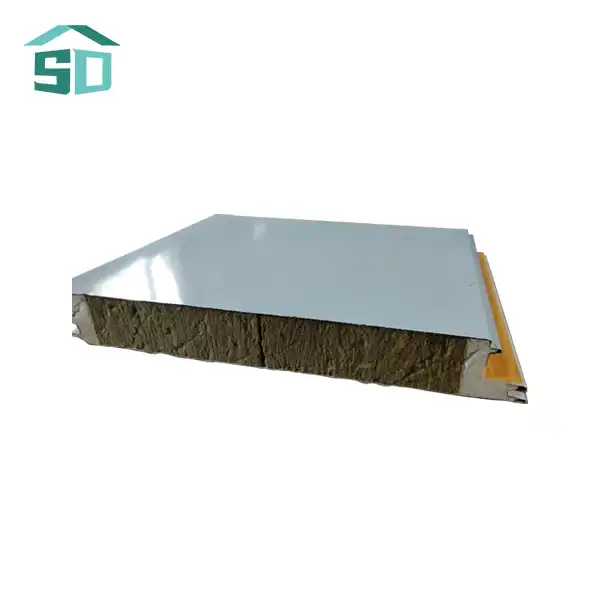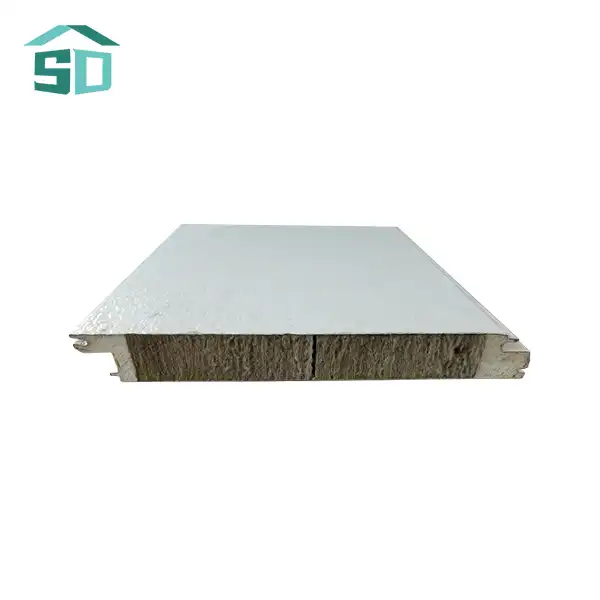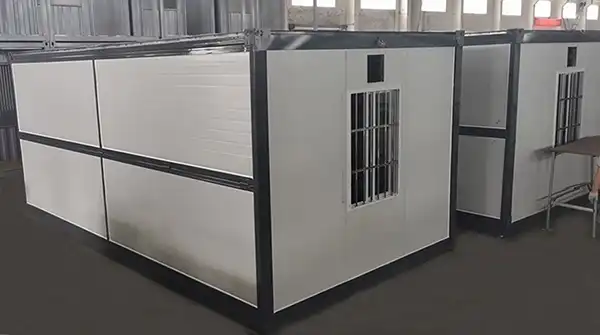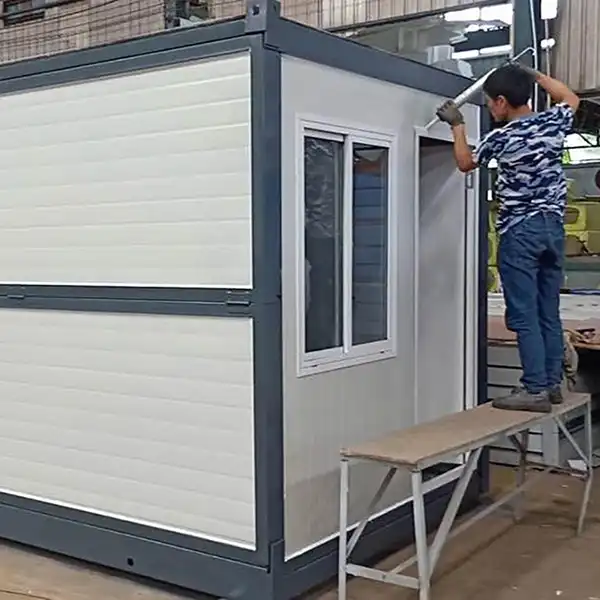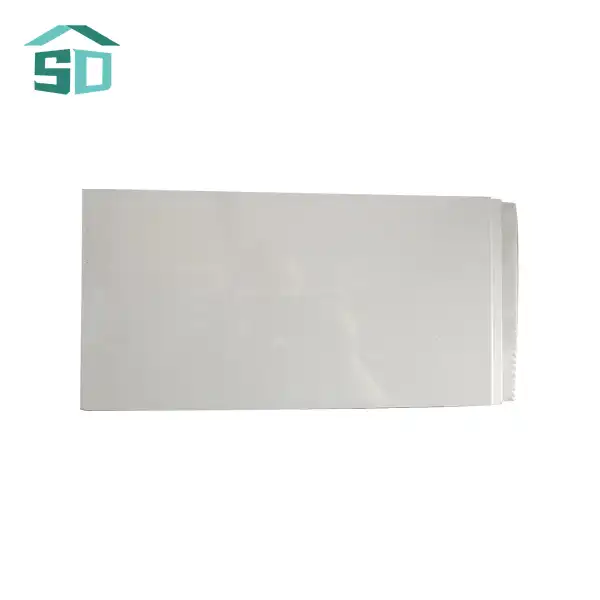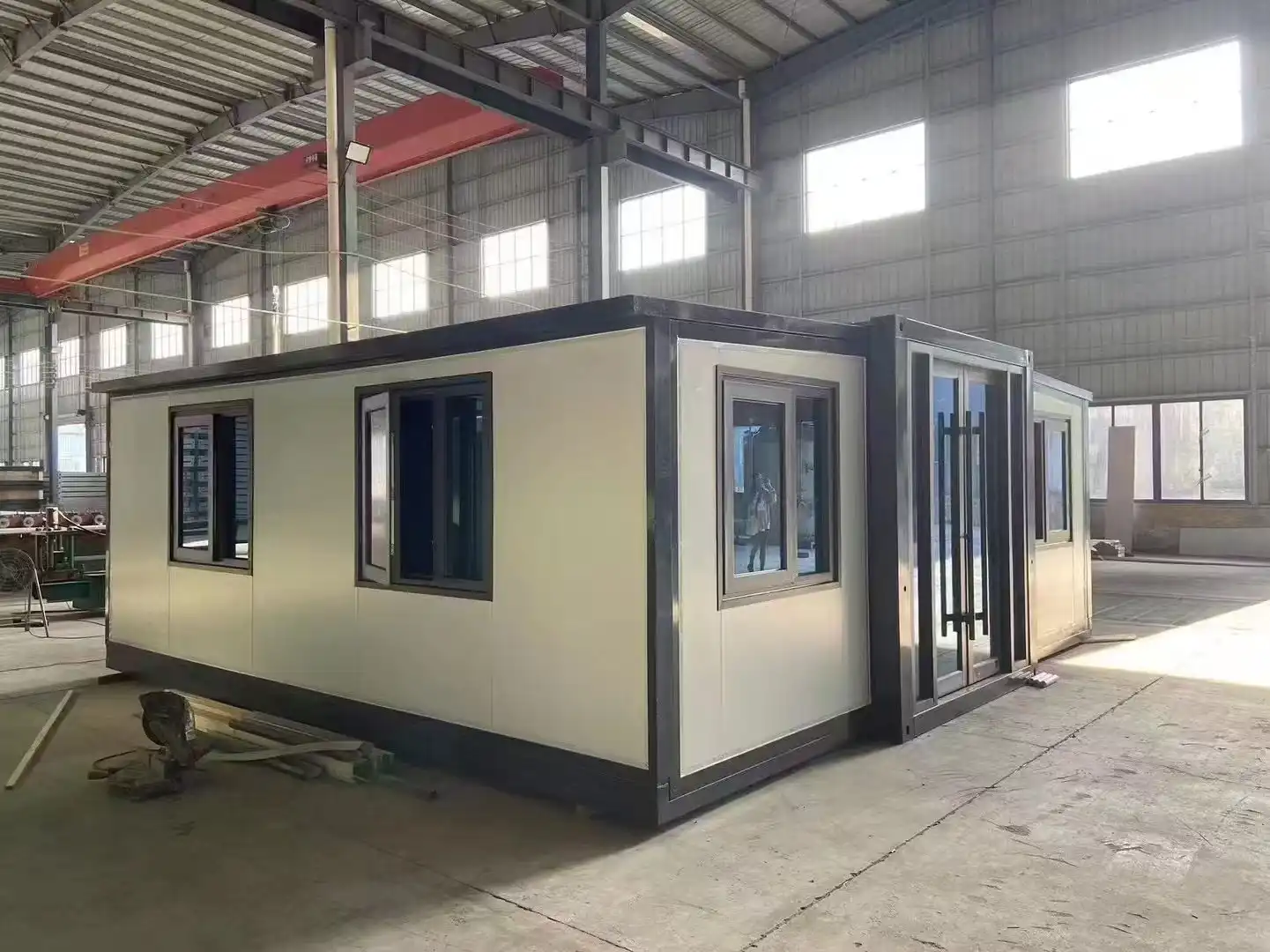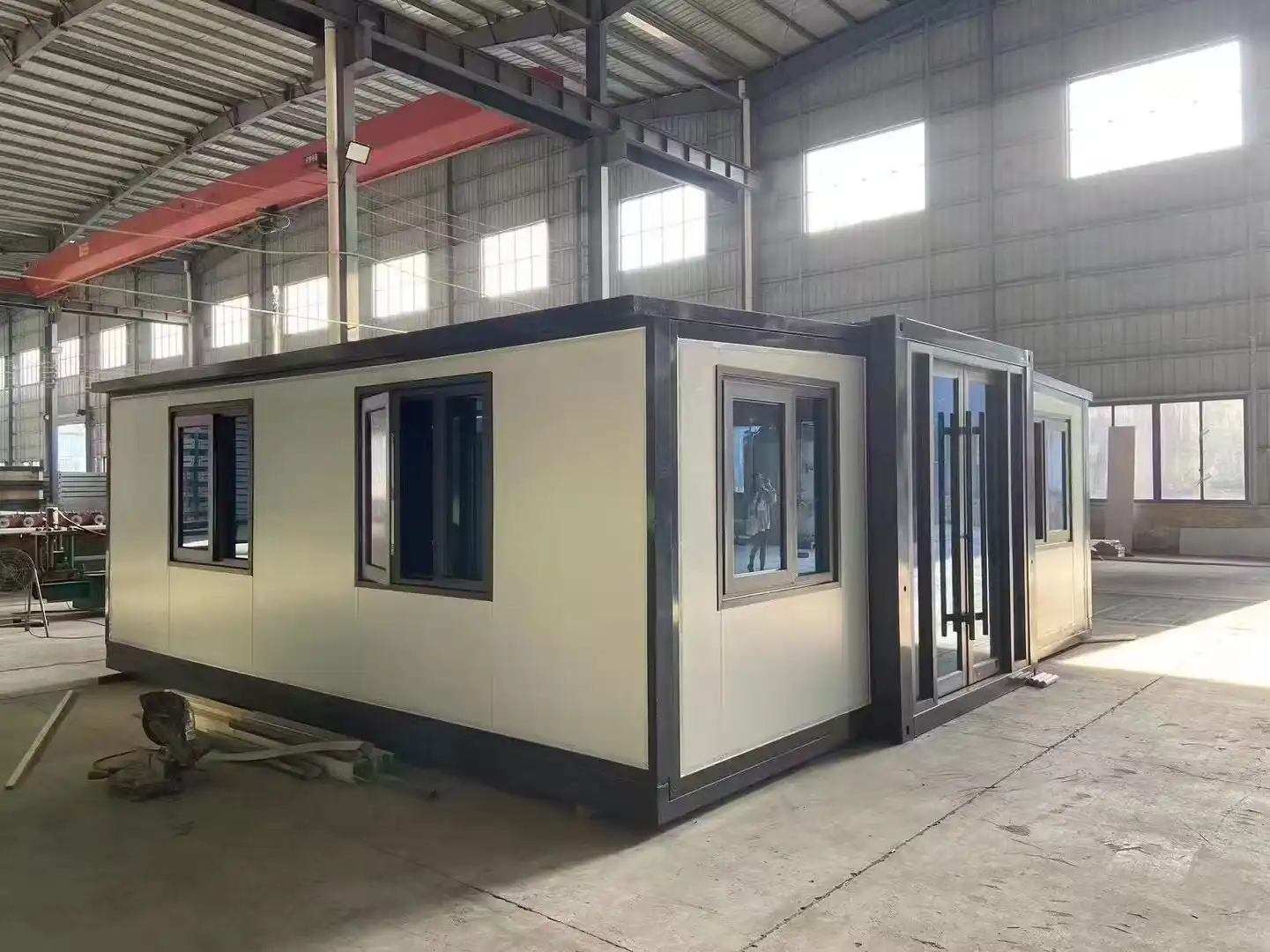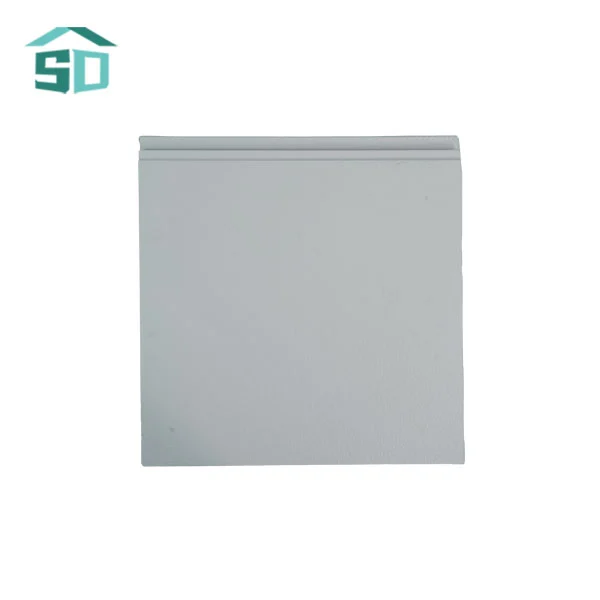Revolutionizing Commercial and Industrial Construction
Metal insulated sandwich panels have transformed the landscape of commercial and industrial construction. These versatile building components offer a myriad of benefits that address the unique challenges faced in these sectors. The panels' superior insulation properties ensure optimal temperature control, crucial for maintaining energy efficiency in large-scale structures. This is particularly beneficial for warehouses, manufacturing facilities, and cold storage units where temperature regulation is paramount.
The durability of metal insulated sandwich panels is another key factor driving their adoption in commercial and industrial applications. The metal construction ensures longevity and strength, capable of withstanding harsh environmental conditions and heavy-duty use. This robustness translates to reduced maintenance costs and extended building lifespan, making them a cost-effective choice for business owners and facility managers.
Enhancing Energy Efficiency in Large-Scale Facilities
One of the most significant advantages of metal insulated sandwich panels in commercial and industrial settings is their ability to enhance energy efficiency. The panels' core, typically made of polyurethane (PU) or polyisocyanurate (PIR), provides excellent thermal insulation. With a thermal conductivity as low as 0.018W/m.k and thermal resistance of 2.09m2k/w, these panels significantly reduce heat transfer between the interior and exterior of buildings.
This high-performance insulation helps maintain ideal temperatures within large facilities, reducing the load on HVAC systems and consequently lowering energy consumption. For businesses operating in extreme climates or those with strict temperature control requirements, such as food processing plants or pharmaceutical storage facilities, metal insulated sandwich panels offer an unparalleled solution for maintaining consistent internal environments while minimizing energy costs.
Rapid Construction and Modular Design in Industrial Projects
The construction industry is increasingly gravitating towards methods that reduce project timelines without compromising on quality. Metal insulated sandwich panels align perfectly with this trend, offering rapid installation capabilities that significantly accelerate construction schedules. These panels come in standardized sizes and can be easily customized to fit specific project requirements.
The modular nature of metal insulated sandwich panels allows for prefabrication off-site, which minimizes on-site construction time and reduces labor costs. This is particularly advantageous in industrial projects where time is of the essence, and disruptions to operations need to be minimized. The panels' lightweight yet sturdy construction facilitates easy handling and installation, further expediting the building process.
Moreover, the versatility of these panels in terms of thickness and width options (exterior panels available in 16mm or 20mm thickness and 383mm width, interior panels in 10mm thickness and 450mm width) allows for flexible design solutions. This adaptability makes metal insulated sandwich panels an excellent choice for both new constructions and retrofit projects in the commercial and industrial sectors.
Elevating Residential Construction Standards
The residential construction sector has witnessed a paradigm shift with the integration of metal insulated sandwich panels. These innovative building materials are redefining the standards of home construction, offering homeowners and developers alike a blend of functionality, aesthetics, and energy efficiency. The application of these panels in residential projects has opened up new possibilities in design and performance, catering to the evolving needs of modern homeowners.
Metal insulated sandwich panels provide an excellent solution for creating well-insulated, durable, and visually appealing homes. Their high thermal resistance (2.09m2k/w) ensures optimal temperature regulation within the living spaces, contributing to improved comfort and reduced energy costs. The panels' versatility allows for both interior and exterior applications, making them suitable for walls, roofs, and even partition walls within homes.
Enhancing Energy Efficiency and Comfort in Homes
Energy efficiency is a top priority in modern residential construction, and metal insulated sandwich panels excel in this aspect. The panels' core, typically made of polyurethane (PU) or polyisocyanurate (PIR), provides superior insulation properties. With a thermal conductivity of just 0.018W/m.k, these panels significantly reduce heat transfer, helping maintain consistent indoor temperatures regardless of external weather conditions.
This high-performance insulation translates to tangible benefits for homeowners. It reduces the reliance on heating and cooling systems, leading to lower energy consumption and reduced utility bills. Additionally, the panels' excellent insulation properties contribute to a more comfortable living environment by minimizing temperature fluctuations and reducing drafts.
Aesthetic Versatility and Customization in Home Design
Beyond their functional benefits, metal insulated sandwich panels offer tremendous aesthetic versatility in residential construction. These panels come in a wide range of colors and patterns, allowing architects and homeowners to achieve unique and personalized exterior and interior finishes. The customizable nature of these panels enables them to complement various architectural styles, from contemporary minimalist designs to more traditional aesthetics.
The flexibility in panel dimensions (with options for different thicknesses and widths) allows for creative architectural expressions. Designers can play with various panel orientations, combinations, and finishes to create visually striking facades or interior walls. This versatility extends to both new constructions and renovation projects, offering homeowners the opportunity to refresh and upgrade their living spaces with modern, high-performance materials.
Sustainable Building Practices with Metal Insulated Sandwich Panels
As the development industry progressively centers on maintainability, metal protects sandwich boards have risen as a frontrunner in eco-friendly building materials. These boards adjust with green building hones by advertising vitality effectiveness, toughness, and recyclability. Their utilize in development ventures contributes altogether to lessening the by and large natural affect of buildings all through their lifecycle.
The sustainability of metal insulated sandwich panels is multifaceted. Their excellent insulation properties lead to reduced energy consumption in buildings, thereby lowering carbon emissions associated with heating and cooling. The longevity of these panels, thanks to their durable metal construction and corrosion-resistant design, means less frequent replacements and renovations, further reducing the environmental footprint of buildings over time.
Eco-Friendly Materials and Manufacturing Processes
The manufacturing of metal insulated sandwich panels increasingly incorporates sustainable practices and materials. Many manufacturers are now using recycled metals for the panel faces, reducing the demand for virgin materials. The insulation core, typically made of polyurethane or polyisocyanurate, is being produced with more environmentally friendly blowing agents that have lower global warming potential.
Besides, the generation handle of these boards is getting to be more proficient and less resource-intensive. Progressed fabricating strategies minimize squander and vitality utilization amid generation. The panels' lightweight nature too contributes to maintainability by diminishing transportation emanations and facilitating the stack on building establishments, possibly driving to less seriously foundation in development ventures.
Long-Term Environmental Benefits in Construction
The use of metal insulated sandwich panels in construction offers long-term environmental benefits that extend well beyond the initial build phase. These panels' superior durability, with features like a waterproof rate of 0.0008 and wind resistance up to 8.0 Kpa, ensures they maintain their performance over extended periods. This longevity reduces the need for frequent replacements or repairs, minimizing waste generation and resource consumption associated with building maintenance.
Moreover, at the conclusion of their valuable life, metal protects sandwich boards offer great recyclability. The metal components can be completely reused, whereas progressions in reusing innovations are making it progressively conceivable to reuse or repurpose the cover center materials. This end-of-life recyclability essentially decreases the squander sent to landfills from development and annihilation exercises.
Conclusion
Metal insulated sandwich panels have proven to be a game-changer in the construction industry, offering a perfect blend of functionality, aesthetics, and sustainability. Their versatile applications in commercial, industrial, and residential construction showcase their adaptability to various architectural needs. From enhancing energy efficiency and rapid construction in large-scale facilities to elevating residential building standards and promoting sustainable practices, these panels are at the forefront of modern construction solutions.
As the industry continues to evolve, the role of metal insulated sandwich panels in shaping the future of construction becomes increasingly significant. Their ability to meet stringent performance requirements while offering design flexibility and environmental benefits positions them as a key component in creating buildings that are not only efficient and durable but also aesthetically pleasing and environmentally responsible.
For those looking to explore the potential of metal insulated sandwich panels in their construction projects or to learn more about these innovative building materials, Weifang Sandong Building Materials Co., Ltd. offers expert guidance and high-quality products. To discuss your specific needs or to get more information, please contact us at info@sdqsc.com. Our team is dedicated to providing unparalleled service and the finest cladding solutions to enhance your construction endeavors.
